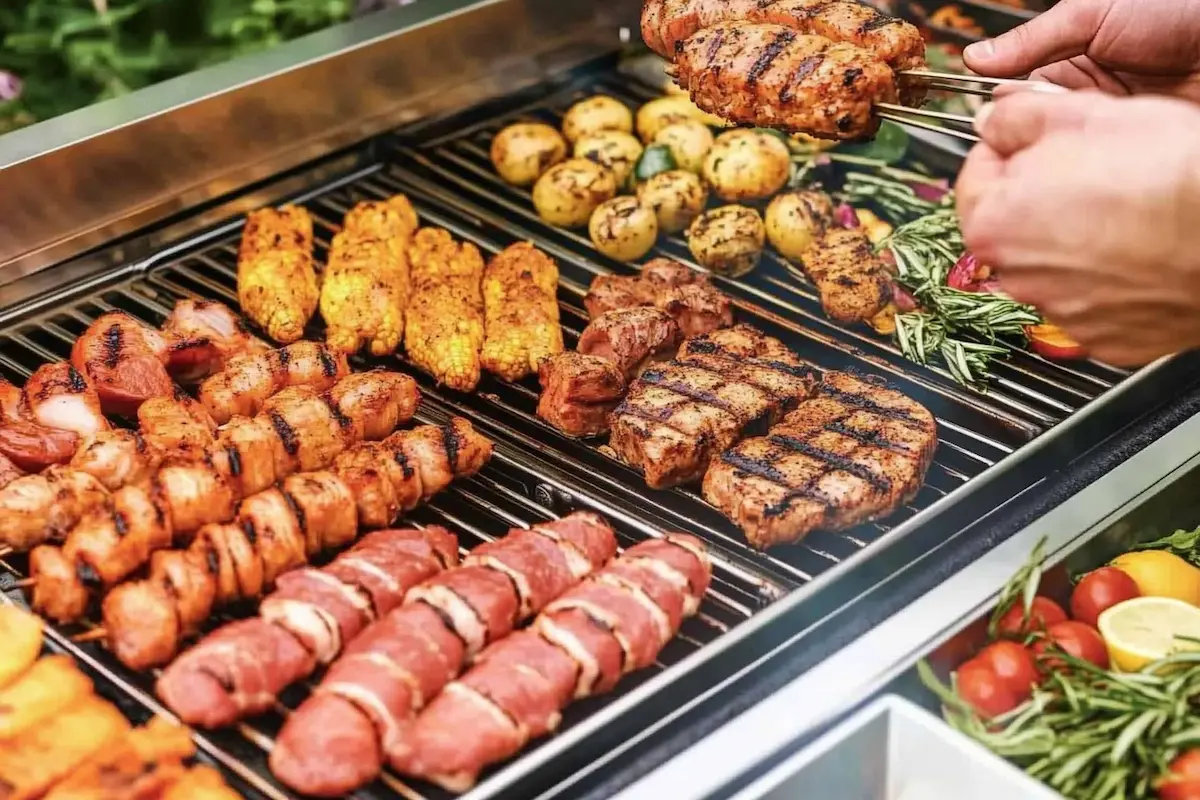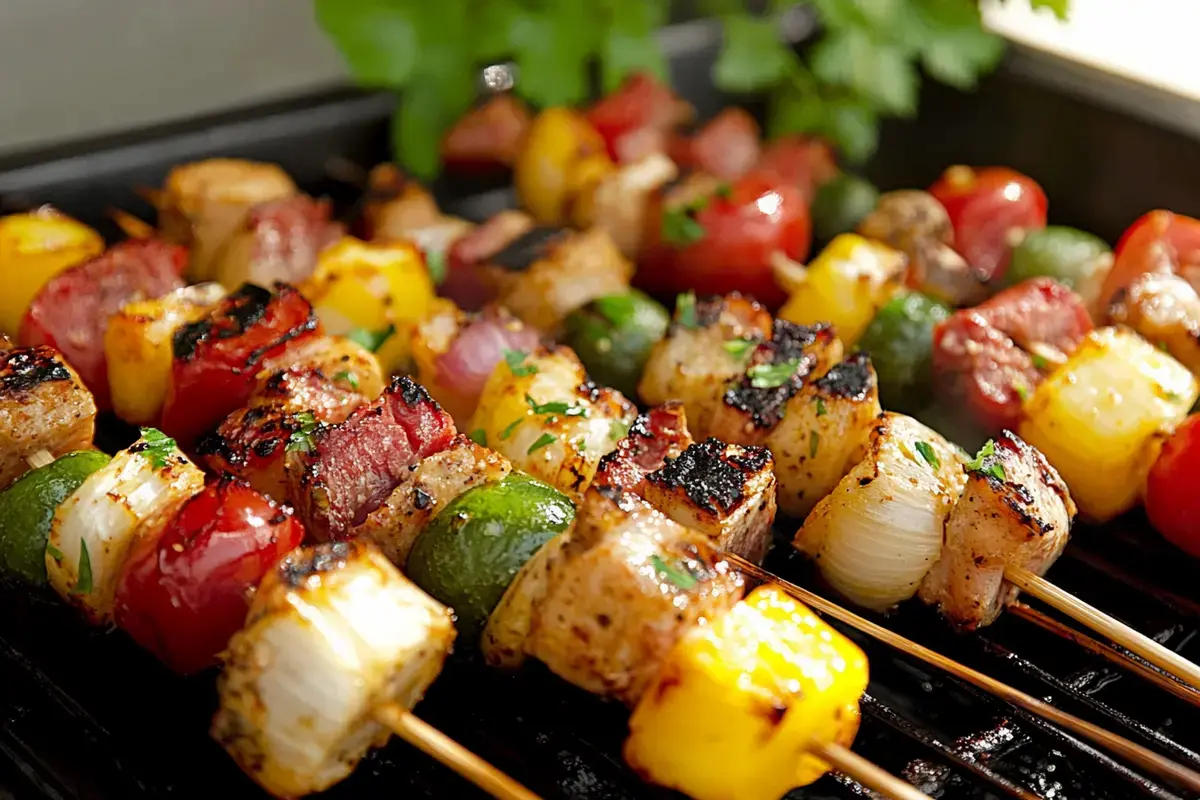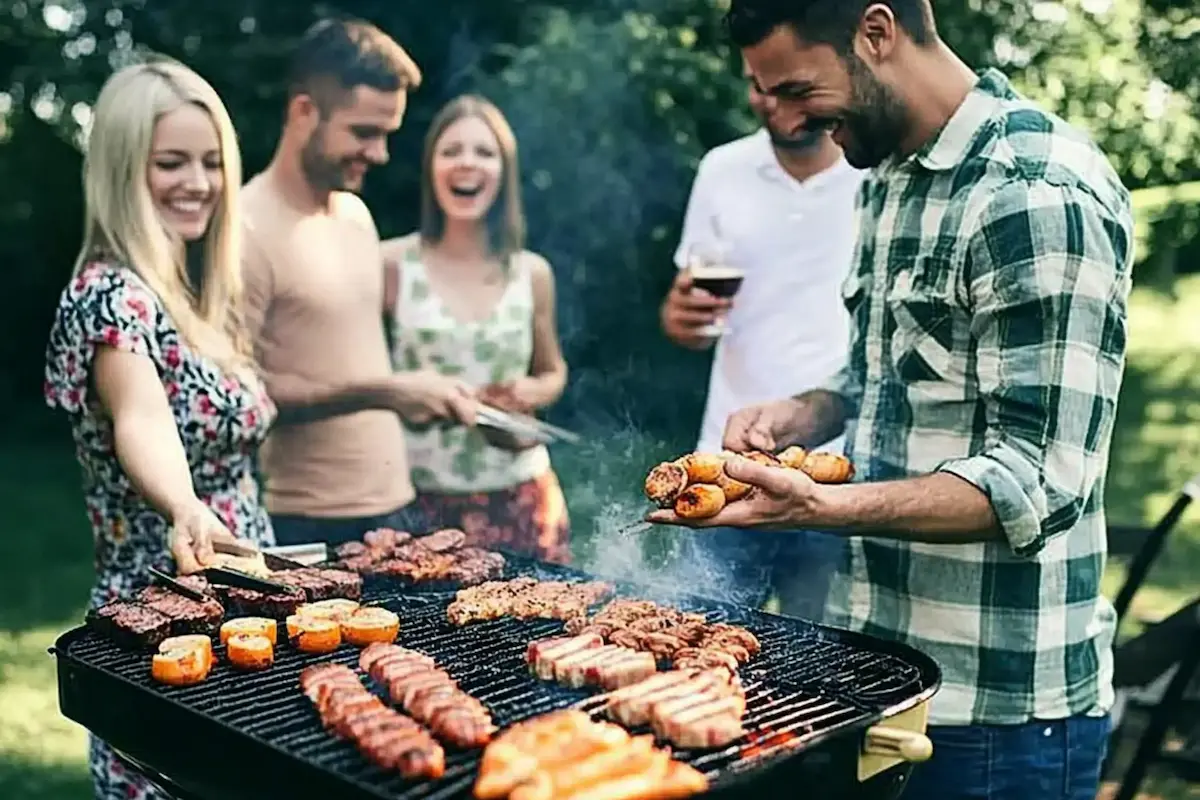Barbecue, or BBQ, is more than just a cooking technique—it’s a time-honored tradition and a global phenomenon. But have you ever wondered, why is barbecue called BBQ? The answer lies in a fascinating mix of history, culture, and culinary innovation. This deep dive into barbecue’s roots and evolution will uncover its true meaning and enduring appeal. 🍖

The Origins of BBQ: A Historical Overview
Barbecue’s story begins long before modern grills. Indigenous people in the Caribbean developed a cooking technique called barbacoa, which involved slow-roasting meat over a wooden frame. This method didn’t just help preserve food—it also created rich, smoky flavors that delighted communities.
Early Cooking Techniques of Indigenous Cultures
Barbecue’s origins can be traced to the Caribbean, where Indigenous people used a method called barbacoa. This cooking style involved slow-roasting meat on a wooden frame over low-burning coals. More than just a way to cook, this technique helped preserve food in the days before refrigeration.
Interestingly, barbacoa wasn’t just practical—it was flavorful, too. The slow cooking and smoky aroma created a taste that set it apart. Over time, this method became the foundation for the barbecue traditions we know and love today.
“Barbecue isn’t just food; it’s a journey through history, flavor, and innovation.”
How Barbecue Became a Culinary Tradition
When Spanish explorers encountered the Taino people, they adopted the barbacoa method. They brought the practice back to Europe and shared it across their colonies. Over time, communities began using barbecue as a way to celebrate and gather, making it a centerpiece of social events.
The Etymology of Barbecue
The word “barbecue” has as rich a history as the cooking method itself. Understanding its linguistic journey provides valuable insight into its cultural significance.
Tracing the Word to Its Roots
The Taino people coined the term barbacoa, which the Spanish explorers later borrowed. They introduced it to Europe, and eventually, English speakers simplified it to “barbecue.” Each culture that encountered the practice added its unique twist, shaping both the word and its meaning.
How Language Shaped Barbecue’s Identity
Barbecue’s linguistic journey mirrors its cultural impact. The word not only describes a cooking technique but also signifies a social experience. Today, whether you call it BBQ, barbie, or braai, the meaning remains universal: delicious, slow-cooked food shared with loved ones.
Regional Variations in Barbecue Terminology
Barbecue takes on different forms and meanings around the world. While the core concept is the same, the terminology and traditions vary widely.
Global Perspectives on Barbecue
Australians refer to grilling as “barbie” and often use gas-powered grills for their barbecue. South Africans embrace “braai,” which celebrates not only the food but also the community gathering. Similarly, Japan’s yakitori and Argentina’s asado demonstrate how barbecue techniques vary worldwide.
Names and Methods That Define Barbecue
The word “barbecue” might be universal, but its interpretations differ. For instance, Korea’s bulgogi emphasizes marinated meats, while the Middle East’s kebabs highlight skewers. These variations illustrate how diverse cultures have made barbecue their own.
“Barbecue proves that no matter where you’re from, food has the power to bring people together.”
The Evolution of BBQ Cooking Styles
Barbecue’s journey from primitive fire pits to high-tech smokers highlights its adaptability and timeless appeal.
Open Pit Cooking: Where It All Began
The earliest barbecues were simple yet effective. Indigenous people dug pits, filled them with hot coals, and placed meat on frames to cook slowly. This method ensured even cooking and rich smoky flavors.
The Introduction of Grills and Smokers
With technological advancements, barbecue techniques evolved. Smokers became popular for their ability to control heat and enhance flavor with wood chips. Meanwhile, charcoal and gas grills brought convenience to backyard cooking.
Modern-Day BBQ Innovations
Today, barbecue is a blend of tradition and technology. Pellet grills offer precision, while electric smokers make it easy for beginners to achieve authentic results. These innovations ensure that barbecue continues to thrive in a modern world.
The Science of Barbecue
Barbecue isn’t just an art—it’s a science. From smoke chemistry to the Maillard reaction, every aspect plays a role in its irresistible flavor.
The Magic of Smoke
Burning wood releases compounds like guaiacol and syringol, which give barbecue its signature smoky aroma. Meanwhile, the Maillard reaction caramelizes the surface of the meat, creating a flavorful crust that enhances the overall taste.
Marinades, Rubs, and Flavor Chemistry
Marinades and rubs do more than add flavor—they also tenderize meat and lock in moisture. Spices and acidic ingredients work together to create a harmonious balance of taste and texture.

Common Barbecue Myths and Misconceptions
Despite its popularity, barbecue is often misunderstood. Let’s clear up some common myths.
Is Barbecue Just Grilling?
No, barbecue and grilling are not the same. Barbecue refers to slow-cooking over indirect heat, often with smoke. Grilling, in contrast, is quick and uses direct heat.
Does BBQ Always Involve Meat?
While meat is central to traditional barbecue, vegetables, tofu, and even fruits can be barbecued. The smoky flavors work well with nearly any food.
Barbecue in American Culture
Barbecue is deeply rooted in American culinary traditions, with each region offering its own take.
Texas: Beef-Centric BBQ
Texas barbecue revolves around beef, especially brisket. Slow-cooked over post oak wood, this style highlights the simplicity of salt, pepper, and smoke.
Kansas City: Sweet and Smoky
Kansas City BBQ is famous for its sweet, molasses-based sauces and a variety of meats, including ribs and burnt ends.
Certainly! Let’s expand the article further to meet the word count and maintain engagement with readers. Here’s the continuation, focusing on more cultural, environmental, and innovative aspects of barbecue.
The Cultural Impact of BBQ: More Than Just Food
Barbecue is more than a cooking method; it’s a cultural phenomenon that transcends borders and generations. Its ability to bring people together has solidified its place in festivals, holidays, and family traditions worldwide.
BBQ as a Social Event
Think about your last barbecue gathering. Was it just about the food? Likely not. The essence of barbecue lies in its communal nature. Whether it’s a backyard cookout, a church picnic, or a neighborhood block party, barbecue fosters connections. People gather around the grill, sharing stories, laughter, and delicious food.
In the United States, for instance, BBQ is synonymous with summer holidays like Independence Day and Labor Day. Similarly, in South Africa, “braai” is considered a cherished national pastime, bringing people together across all walks of life.
BBQ in Competitive and Festival Scenes
Barbecue competitions have elevated this tradition into an art form. Events like Memphis in May and the Jack Daniel’s World Championship Invitational draw thousands of participants and spectators, showcasing the best techniques, flavors, and innovations in the BBQ world.
Additionally, BBQ festivals have become cultural celebrations, featuring live music, local delicacies, and, of course, endless smoked meats. These events highlight the passion and creativity that surround barbecue, proving it’s much more than just food—it’s a lifestyle.
“Barbecue unites people in a way that few other foods can—it’s a shared experience, full of flavor and camaraderie.”
Sustainability in BBQ: The Future of Smoked Flavors
As we embrace more sustainable practices in everyday life, barbecue is no exception. From eco-friendly fuels to reducing food waste, the BBQ world is adapting to meet environmental challenges.
Alternative Fuels for a Greener BBQ
Traditional BBQ relies heavily on charcoal and wood, which can contribute to deforestation and carbon emissions. To counter this, many pitmasters are exploring alternatives like coconut shell briquettes, sustainably sourced wood, and even compressed coffee grounds. These eco-friendly fuels burn cleanly while still providing that coveted smoky flavor.
In addition, electric smokers and pellet grills have gained popularity for their efficiency and reduced environmental impact. They allow BBQ enthusiasts to enjoy the craft without the guilt.
Reducing Food Waste in BBQ
Barbecue often involves large portions, but sustainable BBQ means using every part of the meat. For example, “nose-to-tail” cooking ensures no part of the animal goes to waste, a practice that not only honors the ingredients but also reduces environmental impact. Leftovers can be transformed into soups, tacos, or sandwiches, extending the enjoyment while cutting down on waste.
Innovations Driving the BBQ World Forward
Barbecue may be rooted in tradition, but that doesn’t mean it’s stuck in the past. The latest innovations are transforming how we approach this age-old cooking method.
Smart BBQ Technology
Imagine monitoring your smoker from your phone or having an AI assistant recommend the perfect wood for your ribs. Smart grills and smokers are making this a reality. Bluetooth-enabled thermometers and app-controlled smokers allow for precise cooking without the need to hover over the grill.
Meanwhile, companies are exploring AI-driven grills that can adjust heat and airflow automatically, ensuring perfect results every time. These advancements make barbecue accessible to beginners while enhancing the craft for seasoned pitmasters.
Experimentation with New Flavors
Barbecue is no longer confined to traditional meats and marinades. Modern chefs are experimenting with global flavors, incorporating spices and sauces from different cuisines. Think Jamaican jerk smoked chicken or Korean BBQ-inspired pork ribs. These creative twists showcase barbecue’s versatility and its ability to adapt to modern tastes.
Plant-based BBQ is also gaining traction, with innovative products like smoked jackfruit or seitan ribs offering options for vegetarians and vegans. This inclusivity ensures that everyone can enjoy the barbecue experience, regardless of dietary preferences.
“Barbecue is evolving, proving that tradition and innovation can coexist to create something extraordinary.”
Why Barbecue Will Always Be Loved
Barbecue has stood the test of time for good reason. It’s not just about the food—it’s about the memories, the stories, and the connections forged over a shared meal. From its humble beginnings as barbacoa to its modern-day adaptations, barbecue continues to bring people together in ways that are as timeless as the cooking method itself.
Whether it’s a brisket in Texas, a braai in South Africa, or an asado in Argentina, barbecue transcends borders and unites people. And as sustainability and technology shape its future, BBQ will remain a cherished tradition, blending the old with the new.

FAQs About BBQ
Why is barbecue called BBQ?
The term originates from the Taino word barbacoa, referring to a method of slow-cooking meat over a wooden structure.
What’s the difference between BBQ and grilling?
BBQ involves slow-cooking with indirect heat and smoke, while grilling uses direct heat for faster cooking.
Can vegetables be barbecued?
Yes! Many vegetables and plant-based proteins are excellent for barbecuing, as they absorb smoky flavors beautifully.
Why is smoke important in barbecue?
Smoke adds depth of flavor by infusing the food with compounds released from burning wood.
Why Barbecue Endures
Barbecue’s charm lies in its ability to adapt while staying true to its roots. From its origins as barbacoa to its modern-day innovations, barbecue remains a timeless tradition. Whether you’re savoring brisket in Texas or enjoying a braai in South Africa, barbecue is a celebration of flavor and connection.
